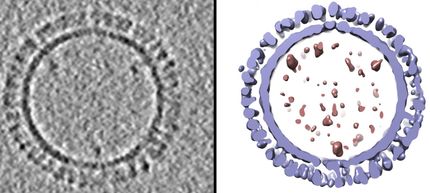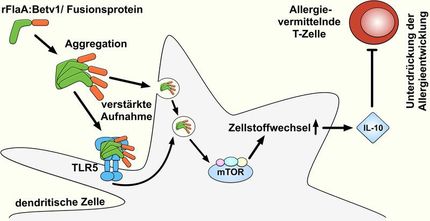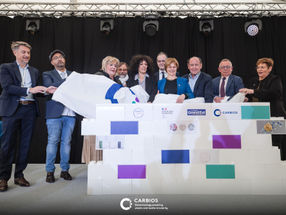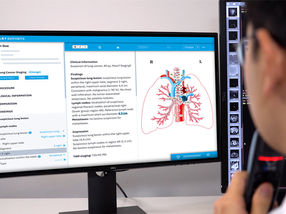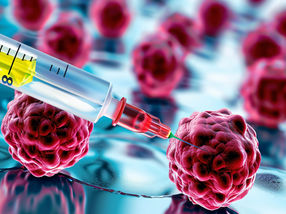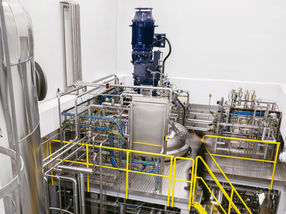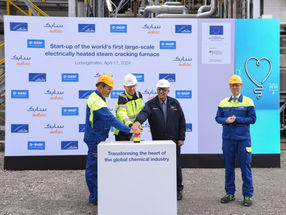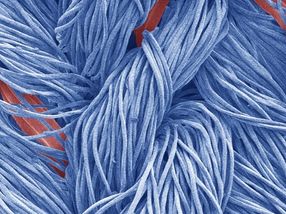Generex Reports on Novel Mechanism for Immunotherapy Cure of Prostate Cancer
Scientists Identify Immunoregulatory Mechanism to Fight Cancer and Infectious Diseases
TORONTO, -- Generex Biotechnology Corporation announced the recent presentation of a poster at the Keystone Symposium, "Rational Design of vaccines and Immunotherapies" in Colorado, on a novel cancer vaccination method developed by scientists and collaborators at its Antigen Express subsidiary. The poster was presented by Dr. Gary Ostroff, a consultant.
"There was considerable interest in the novel Antigen Express DNA transfection method to convert tumor cells in situ into effective immunotherapeutic agents," said Dr. Ostroff. "A big problem today is promoting helper T lymphocytes to build an effective immune response against cancer and virally infected cells. Antigen Express scientists have identified a mechanism boosting immunoregulatory T cell responses to combat cancer and infectious diseases." Dr. Ostroff was formerly Vice President, Research at Alpha-Beta Technologies, Inc.
Dr. Eric von Hofe, Vice President, Technology Development at Antigen Express, explained why this method of immunostimulation is so potent. "The biological mechanism of this type of stimulation is well understood and we have a commanding patent position on the necessary agents and their methods of use. The immune system has basically two types of lymphocytes. Killer T lymphocytes eliminate tumors or virally infected cells, and helper T lymphocytes help to activate killer T lymphocytes. Many companies have effective vaccines for stimulating killer T lymphocytes. The missing link is making good vaccines for helper T lymphocytes. That problem has been solved by Antigen Express scientists, who developed means to suppress the expression of a specific immunoregulatory protein (Ii). This protein can block antigens from stimulating T helper cells. By inhibiting this protein, a whole range of antigens from tumors or virally infected cells can now be recognized by T helper cells, greatly boosting the immune response to cancer and pathogenic viruses." Dr. von Hofe trained at USC, the University of Zurich, and Harvard. He was most recently, Program Director, Target Validation at Millennium Pharmaceuticals.
The Antigen Express method cures about half of mice treated with an aggressive, poorly immunogenic prostate cancer. Development is proceeding in animal models and for human reagents to treat prostate, breast, colon, and lung cancers and melanoma. The following papers by Antigen Express scientists present the detailed evidence supporting Dr. von Hofe's conclusions.
Hillman GG, Kallinteris NL, Li J, Wang Y, Lu X, Wu S, Wright J.L, Slos P, Gulfo JV, Humphreys RE, and Xu M. Generating MHC Class II+/Ii- phenotype after adenoviral delivery of both an expressible gene for MHC Class II inducer and an antisense Ii-RNA construct in tumor cells. Gene Therapy 10: 1512-1518, 2003.
Lu X, Kallinteris NL, Li J, Wu S, Li Y, Gulfo JV, Humphreys RE, and Xu M. Tumor Immunotherapy by converting tumor cells to MHC Class II-positive, Ii protein-negative phenotype. Cancer Immunol. Immunother. 52: 592-598, 2003.
Hillman GG, Xu M, Wang Y, Wright JL, Lu X, Kallinteris NL, Teki-Mensah S, Thompson, T, Mitchell, M, and Forman, J. Radiation improves intratumoral gene therapy for induction of cancer vaccine in murine prostate carcinoma. Human Gene Therapy 14:763-775, 2003
"We are finding revolutionary, not evolutionary solutions to major medical problems," said Anna Gluskin, Chief Executive Officer of Generex."We have achieved that in RapidMist delivery of insulin. We have acquired the novel immunotherapeutic platforms of Antigen Express because there are important synergies. These synergies lie in the use of RapidMist technology to deliver the drugs being developed by Antigen Express. In some cases, we think RapidMist is the only practical way to deliver those drugs. That is, when high frequency, low dose, immunomodulating peptide must be delivered to control autoimmune diseases such as multiple sclerosis or diabetes, the needle-less, convenient RapidMist method will be preferred by patients and their physicians."
Ms. Gluskin also noted that National Cancer Institute and NIAID study sections have awarded four SBIR grants to Antigen Express in 2003, averaging about $331,000 each, scoring up to the 98th percentile of submitted grants..
Other news from the department business & finance
Most read news
More news from our other portals
See the theme worlds for related content
Topic world Gene therapy
Genetic diseases once considered untreatable are now at the center of innovative therapeutic approaches. Research and development of gene therapies in biotech and pharma aim to directly correct or replace defective or missing genes to combat disease at the molecular level. This revolutionary approach promises not only to treat symptoms, but to eliminate the cause of the disease itself.

Topic world Gene therapy
Genetic diseases once considered untreatable are now at the center of innovative therapeutic approaches. Research and development of gene therapies in biotech and pharma aim to directly correct or replace defective or missing genes to combat disease at the molecular level. This revolutionary approach promises not only to treat symptoms, but to eliminate the cause of the disease itself.
